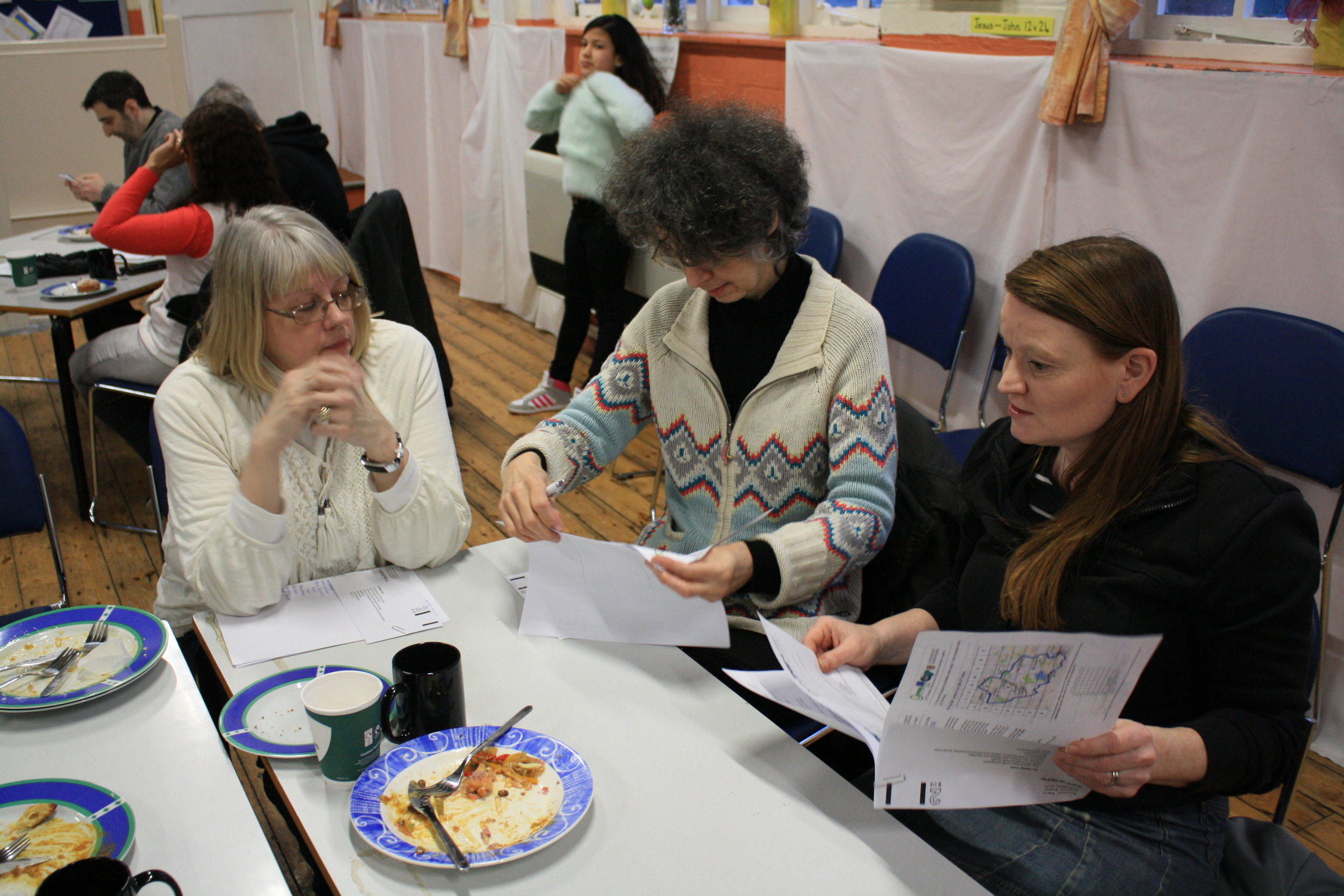When we started Neighbour Nights back in October 2017, we began with a simple question: Instead of taking an issue-based approach to community organising which starts with neighbourhood problems (ex: Why is there so much litter and why isn't City Council dealing with it?!), what is possible if we bring neighbours together around food to talk about their gifts and how to share them? Another term for “bringing neighbours together around their gifts” is associating, and the theme of this blog: the power of associating.
In the previous blog post, we focused on gifts and the importance of gift mindedness as a posture for cultivating flourishing community-led development. If we think of gifts as the raw material for cultivating community, then we can think of associations as the way those gifts are exchanged.
The Summerfield Community Garden Project addressing attendees at Neighbour Night.
In fact, the power of associational life lies in its simplicity. In The Abundant Community, John McKnight and Peter Block describe it this way:
“An association is fundamentally a group of people who have a shared affinity. Associational life begins with a group of people who are drawn together for some reason, and that reason is what makes it work. Say they all like dogs, so they have a dog club. Or they all like reading fiction, so they have a book club. An association is often a fulfilment of one's individual likes and purposes. It is a place for having something in common, standing on common ground..." [1]
In other words, whether by a common location, common function or common interest, associations are vital to neighbourhood life because they are the primary social process by which gifts get expressed in community.
As a once-a-month repeatable gathering, Neighbour Nights has become such an association in Summerfield. In fact, in addition to creating a context where individual residents can share their gifts, it has become a kind association of associations, space where:
• Existing associations such as Christ Church Summerfield and Summerfield Residents Association can connect and partner;
• The Real Junk Food Project Birmingham can raise its profile and recruit participants;
• Winson Greeners can get the word out about monthly litter picks;
• City Hospital Greenhouses (our neighbourhood horticultural initiative) can promote its workdays and organise workshops around the latent skills of residents.
And herein lies the paradox of community organising towards associational life in the neighbourhood: some organisation is necessary in order to associate and create the environment for gift sharing and getting things done, yet too much organisation ends up destroying the social fabric of associations!
Neighbours discussing local issues.
Eight months in, we are recognising that there is a balancing act in this kind of community organising. On the one hand, we know that just living in proximity is not enough. Proximity might make us neighbours in a formal, sociological sense, but by itself, proximity does not create associational life. Associational life must be convened, literally "called to come together." But on the other hand, we could try to move beyond convening to managing the relationships and outcomes between these associations. The temptation here is to make all the exchanges predictable and more "efficient" in a managerial sense. But predictability and efficiency come at the cost of losing neighbourliness, and we are committed not to be managers on task, but rather "being neighbours on purpose."
For Companions for Hope, "being neighbours on purpose" is shorthand for intentionally designing just enough structure to become “an organising agent rather than a service-providing system."
Why? Because we believe that service provision does not satisfy the core longings of community. We believe that beyond service provision (as important as it is), there are the gifts of the people and the power of association to make those gifts sharable.
Therefore, I see the associations that come together through Neighbour Nights as a form of community gardening in both senses of the term: gardening in the community as well as a gardening of the community. The gifts of the people are like seeds, powerful yet dormant unless exposed to the right conditions; the associations are the 'microclimates' that provide these seeds with enough soil, water, warmth and light to grow.
In this way, Neighbour Nights is one way we have learned to garden together with our neighbours...
-Sam
[1] John McKnight and Peter Block, The Abundant Community: Awakening the Power of Families and Neighborhoods (San Francisco: Berrett-Koehler, 2010), 71.

